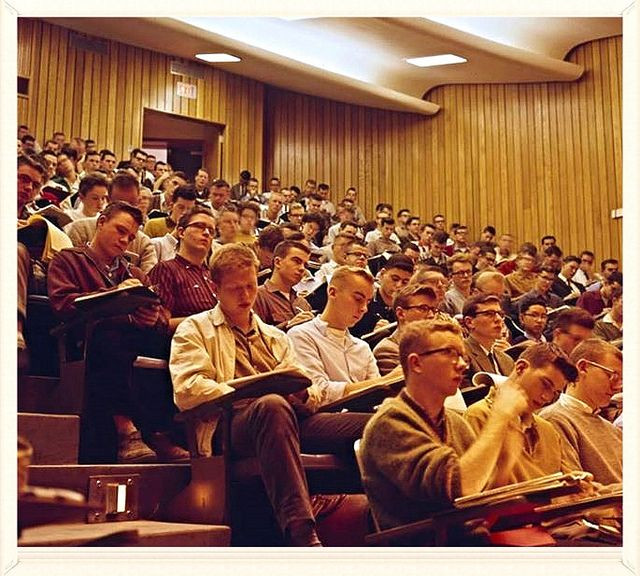Men Undervalue How Smart Their Female Classmates Are, And Overvalue Their Male Peers

The continuing under-representation of women in the science, technology, engineering, and math (STEM) world is a problem whose roots can be seen as early as undergraduate biology class, a recent study published in PLOS One suggests.
Surveying 1,500 undergraduate students from three classes over the period of a college quarter, the researchers found that men were more likely to rate other male peers as especially competent and knowledgeable over women, even after accounting for performance and a willingness to speak out loud in class (men had a slight edge in both). For women, no such bias existed after accounting for these factors. Additionally, in all three classes, men were always nominated as the three to four smartest students by the majority of the class, despite the presence of outspoken women who excelled equally.
When translating these findings in terms of GPA, the researchers concluded that an outspoken women would need to have a 3.765 GPA in order to have as good a chance at being nominated the smartest student as would a man with a 3.00 GPA.
“This indicates that males hold a bias against their female peers’ competence in biology,” the researchers wrote. “Our finding of peers as a second source of differential treatment by gender, beyond known biases of faculty, contributes to a more complete picture of the experiences of undergraduate women in STEM fields.”
As the researchers emphasize, there are already documented effects of bias seen at the undergraduate and graduate level, from faculty members spending more time mentoring male students to being more likely to answer e-mails from their male students. These subtle differences in treatment, while not the only reason for women’s documented reluctance to continue pursuing a STEM career, amount to an “accumulation of smaller experiences that determine whether a female student identifies with and persists in a scientific field,” particularly when it comes to self-confidence. Other research has shown that women experience disproportionate levels of sexism and harassment once they successfully establish their scientific careers.
According to the researchers, the fact that biology has become one of the more inclusive STEM fields, with slightly more women than men now recieving degrees in the area, could mean there might be even stronger gender biases elsewhere, though further research will need to be performed.
“Across many cultures, STEM is associated with males and not females. Interestingly, male STEM majors in the US hold the strongest associations between maleness and science, while female STEM majors show some of the weakest implicit biases between gender and science,” they wrote. “These differences in the gender-STEM stereotypes held may explain why male undergraduate STEM majors nominate more males, but females do not demonstrate this bias. It also helps explain why male faculty demonstrate biases in hiring and mentoring, but many female STEM faculty do not.”
The researchers do offer some possible evidence-based interventions to help counteract these preconceptions, such as randomly calling on students rather than waiting for someone to raise their hands, or hiring more female faculty to serve as role models.
“Our findings have strong implications regarding the effectiveness of existing strategies to increase women in STEM fields,” they concluded. “Without addressing social dynamics that perpetuate gender biases in the college classroom, simply increasing the number of young women entering STEM majors may not be enough. “
Source: Grunspan D, Eddy S, Brownell. Males Under-Estimate Academic Performance of Their Female Peers in Undergraduate Biology Classrooms. PLOS One. 2016.
Published by Medicaldaily.com



























